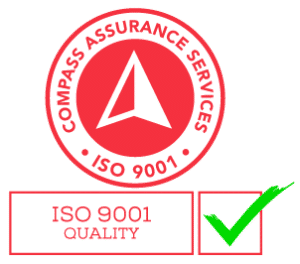Managing a mobile workforce in the construction industry presents unique challenges. With teams often spread across multiple sites, ensuring effective communication, coordination, and safety can be difficult.
However, with the right strategies and tools, these challenges can be transformed into opportunities for increased efficiency and productivity.
1. Mobile Technology Tools
Mobile technology is crucial for managing employees dispersed across multiple sites. Mobile workforce management tools, apps, and devices allow for real-time communication, task management process, and progress tracking, all of which are essential for keeping projects on track.
Key Tools:
- Task Management Apps: These apps help in assigning tasks, setting deadlines, and tracking progress. Workers can receive updates and instructions directly on their devices, reducing the need for in-person meetings.
- GPS Tracking: GPS technology enables managers to monitor the location of their mobile workers, ensuring that teams are where they need to be and that resources are allocated efficiently.
- Digital Timesheets: Replacing traditional paper timesheets with digital versions can streamline payroll processes and reduce errors.
Benefits:
- Streamlined Workflows: Digital tools reduce the reliance on paper-based processes, allowing for quicker task completion and better organisation.
- Real-Time Updates: Managers can monitor progress in real-time, making it easier to identify and address any issues that arise, ensuring that projects stay on schedule.
2. Construction Project Management Systems
Effective management of a mobile workforce in construction requires more than just mobile apps; it also demands a robust, centralised system for construction project management. Cloud-based project management platforms are invaluable in this regard, offering a single point of access for all project-related data and documentation.
Key Features:
- Centralised Data Access: Cloud-based systems allow all team members to access project plans, schedules, and updates from any location. This ensures that everyone is working with the most current information.
- Real-Time Collaboration: These platforms enable real-time collaboration among team members, regardless of where they are located.
- Document Management: With cloud-based systems, all project documents are stored in one place, making it easy to track revisions and maintain version control.
Benefits:
- Improved Project Visibility: Managers can monitor the progress of multiple projects from a single dashboard, making it easier to allocate resources and make informed decisions.
- Increased Efficiency: By streamlining document management and collaboration, cloud-based systems help reduce the time spent on administrative tasks, allowing teams to focus on project execution.
3. Establish Clear Communication Channels
Clear and consistent communication is the backbone of effective mobile workforce management solutions in construction. With teams spread across various sites, it’s essential to have reliable communication channels that ensure everyone stays informed and aligned with project goals.
Key Strategies:
- Instant Messaging Apps: Implementing instant messaging apps that are accessible on mobile devices allows for quick and easy communication between team members. These apps can be used for both individual and group conversations.
- Regular Check-Ins: Establishing a routine for regular check-ins, whether daily or weekly, helps to keep everyone aligned and address any issues promptly.
- Communication Protocols: Setting clear communication protocols ensures that everyone knows the appropriate channels and methods for different types of communication, such as when to use email or instant messaging.
Benefits:
- Reduced Misunderstandings: Clear communication channels minimise the risk of misunderstandings and ensure that instructions are followed accurately.
- Improved Team Coordination: By establishing reliable communication methods, team members can collaborate more effectively, leading to better overall project execution.
4. Prioritise Safety Training and Compliance
In the construction industry, safety is paramount, especially when managing a mobile workforce. Ensuring that all team members are adequately trained and compliant with safety regulations is essential to prevent accidents and maintain a safe working environment across multiple sites.
Key Approaches:
- Ongoing Safety Training: Regular safety training sessions should be mandatory for all workers, covering both general safety practices and site-specific hazards. This training can be conducted in-person or through online modules.
- Safety Audits and Inspections: Conduct regular safety audits and site inspections to ensure compliance with safety standards.
- Compliance Monitoring: Use digital tools to track compliance with safety protocols, such as ensuring that all workers have completed their required training and are following safety guidelines on-site.
Benefits:
- Reduced Risk of Accidents: Ongoing training and compliance monitoring significantly reduce the likelihood of accidents, protecting both workers and the company from potential liabilities.
- Regulatory Compliance: Regular training and audits help ensure that your company remains compliant with local and national safety regulations, avoiding potential fines and legal issues.
5. Schedule Regular Team Meetings
Regular team meetings are crucial for maintaining alignment and ensuring that all team members are aware of their responsibilities and the current status of the project. In a mobile workforce, where workers are often dispersed across various locations, these meetings help keep everyone connected and focused on common goals.
Key Practices:
- Virtual Meetings: Utilise video conferencing tools to hold virtual meetings with your team. This allows you to bring together workers from different sites without the need for travel.
- In-Person Meetings: When possible, schedule in-person meetings at central locations or on-site to discuss key project milestones, address challenges, and reinforce team cohesion.
- Meeting Agendas: Always prepare a clear agenda for each meeting to ensure that the discussion stays focused and that all critical topics are covered.
Benefits:
- Opportunity for Feedback: These meetings provide a platform for workers to share their insights, raise concerns, and suggest improvements, fostering a collaborative and inclusive work environment.
- Quick Issue Resolution: By discussing challenges and potential issues during meetings, you can address problems before they escalate, keeping the project on track.
6. Workforce Performance Management
Monitoring and analysing the performance of your mobile workforce is critical for ensuring that your construction projects stay on track and meet their objectives. By leveraging data analytics and performance monitoring tools, you can gain valuable insights into your team’s productivity and identify areas for improvement.
Key Strategies:
- Use Performance Metrics: Implement key performance indicators (KPIs) to measure increased productivity, such as task completion rates, time management, and quality of work.
- Real-Time Monitoring: Use digital tools to track employee performance in real-time. This includes monitoring the progress of tasks, worker location, and adherence to project timelines.
- Data-Driven Decisions: Analyse the collected data to identify trends, strengths, and areas that need improvement. Use this information to make decisions about resource allocation and process adjustments.
Benefits:
- Increased Productivity: By regularly monitoring performance, you can identify bottlenecks and implement solutions to improve efficiency.
- Informed Resource Management: Data-driven insights help you allocate resources more effectively, ensuring that the right people are in the right place at the right time.
7. Offer Support to Workers
Supporting your mobile workforce goes beyond providing the right tools and monitoring performance. It’s also about understanding their needs and offering the flexibility that allows them to work effectively, even when they are on the move or facing challenging circumstances.
Key Approaches:
- Flexible Work Hours: Offer flexible work hours to accommodate the varying needs of your workforce. This is particularly important in construction, where work can be influenced by weather conditions, site access, and other factors.
- Remote Support: Provide remote support through mobile apps, help desks, and online resources to assist workers with technical issues or questions, regardless of their location.
- Health and Well-Being Programs: Implement programs that support the physical and mental well-being of your workers. This can include access to health services, mental health support, and ergonomic advice for those working in challenging environments.
Benefits:
- Increased Job Satisfaction: Flexibility and support help to reduce stress and increase job satisfaction, leading to higher worker retention and better morale.
- Enhanced Performance: When workers feel supported and valued, they are more likely to perform at their best, contributing to the overall success of the project.
Optimise Your Mobile Workforce Management with Expert Guidance
Effectively managing a mobile workforce in the construction industry requires a combination of the right tools, clear communication, and a commitment to safety and well-being.
The IT experts at Steadfast Solutions can help you optimise your mobile workforce management. As a specialised provider of IT support and solutions to construction companies, we have the industry knowledge and resources to implement the tools and best practices your company needs. Reach out to us for a consultation today, and find out how we can help you complete projects on time, within budget, and to the highest standards.




